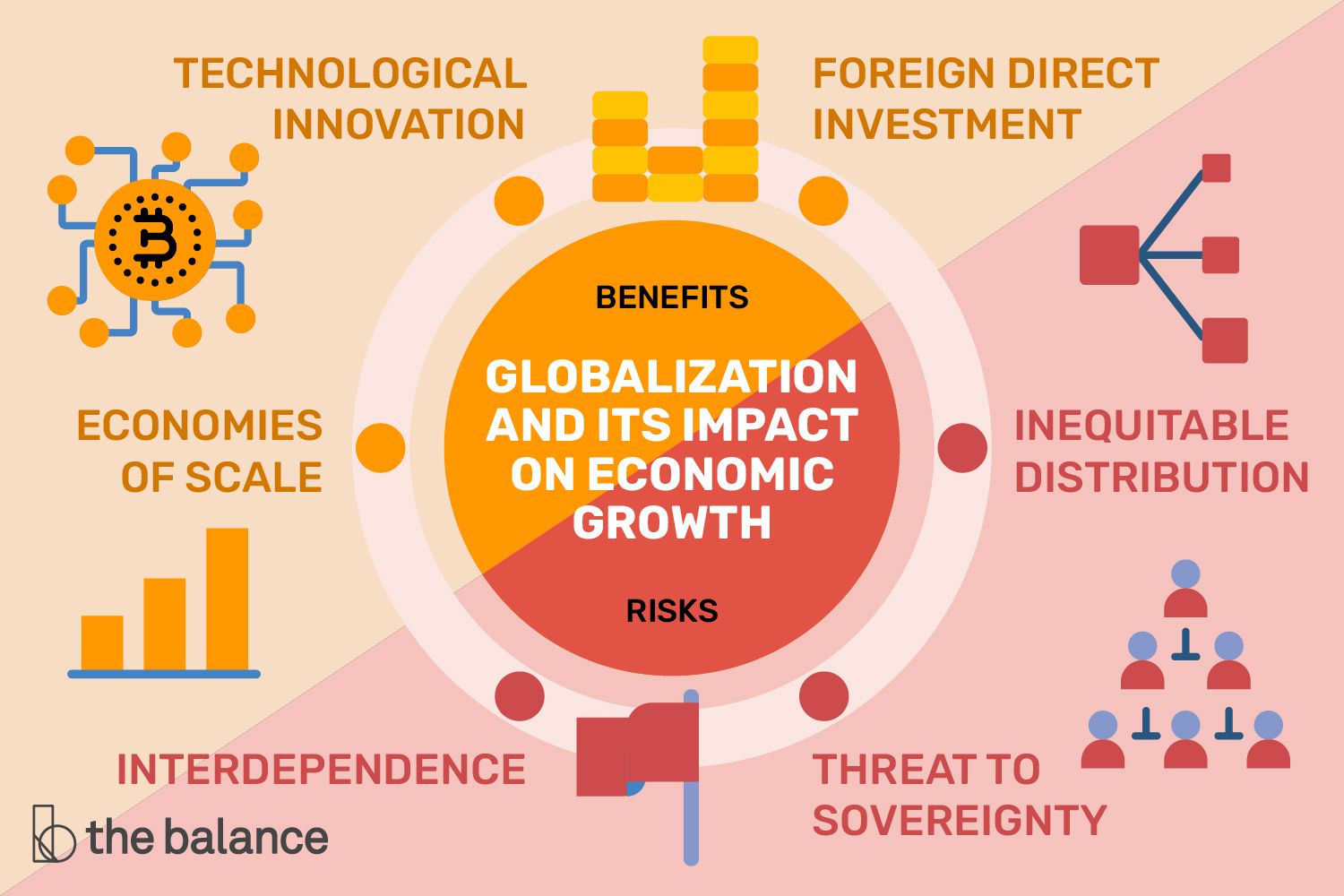The Benefits of Globalization
Globalization, an ongoing process that has significantly shaped the world we live in today, refers to the increasing interconnectedness and interdependence of countries through the exchange of goods, services, information, and ideas. In this article, we will delve into the numerous benefits of globalization, exploring how it has positively impacted various aspects of our lives.
Enhanced Economic Growth
One of the key advantages of globalization is its ability to stimulate economic growth. By promoting international trade and investment, globalization has opened up new markets and opportunities for businesses worldwide. This increased competition encourages innovation and efficiency, leading to improved productivity and economic prosperity.
Increased Job Opportunities
Globalization has also facilitated the creation of job opportunities, both locally and internationally. As businesses expand their operations globally, they require a diverse range of skills and expertise, leading to the creation of new jobs. Additionally, globalization has allowed companies to tap into international markets, enabling them to hire workers from different countries, thus providing employment opportunities to individuals worldwide.
Access to a Wide Variety of Goods and Services
Thanks to globalization, consumers now have access to a wide range of goods and services from different parts of the world. This has not only broadened consumer choices but has also resulted in increased affordability and improved quality of products. Global competition has driven companies to constantly innovate and improve their offerings, benefiting consumers with better options.
Cultural Exchange and Diversity
Globalization has fostered cultural exchange and diversity, allowing individuals from different backgrounds to connect and learn from one another. The exchange of ideas, traditions, and values has enriched societies, promoting tolerance and understanding. This cultural diversity has also led to the emergence of new ideas and perspectives, fueling innovation and creativity.
Technological Advancements
Globalization and technological advancements go hand in hand. The exchange of information and ideas across borders has accelerated the pace of technological innovation. Access to new technologies and knowledge from around the world has facilitated progress in various fields, such as medicine, communication, and transportation. These advancements have improved the quality of life for many and have opened up new possibilities for future development.
Environmental Benefits
Contrary to popular belief, globalization has also brought about some environmental benefits. As countries become more interconnected, there is an increased awareness of the need for sustainable practices. Global efforts to address environmental challenges, such as climate change and pollution, have been strengthened through international cooperation and collaboration. Sharing knowledge and resources has enabled the development and implementation of more effective environmental policies.

In conclusion, globalization has had a profound impact on various aspects of our lives, bringing numerous benefits. From economic growth and job creation to cultural exchange and technological advancements, its positive influence is undeniable. While it is important to acknowledge the challenges and potential drawbacks associated with globalization, its overall impact has been transformative and has the potential to continue shaping our world for the better.
Frequently Asked Questions about the Benefits of Globalization
1. What is globalization?
Globalization refers to the increasing interconnectedness and interdependence of countries through the exchange of goods, services, information, and ideas on a global scale.
2. How does globalization benefit economies?
Globalization allows countries to access larger markets, attract foreign investments, and benefit from economies of scale, leading to increased productivity, economic growth, and job creation.
3. Does globalization benefit consumers?
Yes, globalization benefits consumers by providing access to a wider variety of goods and services at competitive prices, improving living standards, and increasing consumer choices.
4. What are the social benefits of globalization?
Globalization promotes cultural exchange, diversity, and understanding among different societies. It can also lead to the spread of knowledge, technology, and ideas, fostering innovation and progress.
5. Does globalization help reduce poverty?
Globalization has the potential to reduce poverty by creating job opportunities, increasing incomes, and improving access to education, healthcare, and resources in developing countries.
6. How does globalization impact the environment?
While globalization can contribute to environmental challenges, such as increased carbon emissions and resource depletion, it also provides opportunities for global cooperation and the sharing of sustainable practices to address these issues.
7. Are there any political benefits of globalization?
Globalization can foster political stability and peace by promoting international cooperation, diplomacy, and the exchange of ideas. It can also empower individuals and communities through increased access to information and communication technologies.
8. Does globalization benefit small businesses?
Yes, globalization can benefit small businesses by providing access to global markets, enabling them to reach a larger customer base, and facilitating partnerships with international suppliers, which can lead to business growth and increased competitiveness.
9. How does globalization impact cultural diversity?
Globalization can both positively and negatively impact cultural diversity. While it can lead to the homogenization of some cultural aspects, it also provides opportunities for the preservation and promotion of diverse cultural traditions, languages, and heritage.
10. What are the long-term benefits of globalization?
The long-term benefits of globalization include improved living standards, economic growth, technological advancements, reduced poverty, enhanced access to education and healthcare, and the potential for global cooperation to address common challenges.




